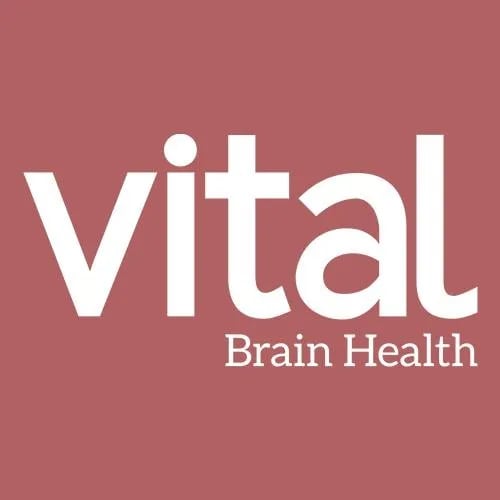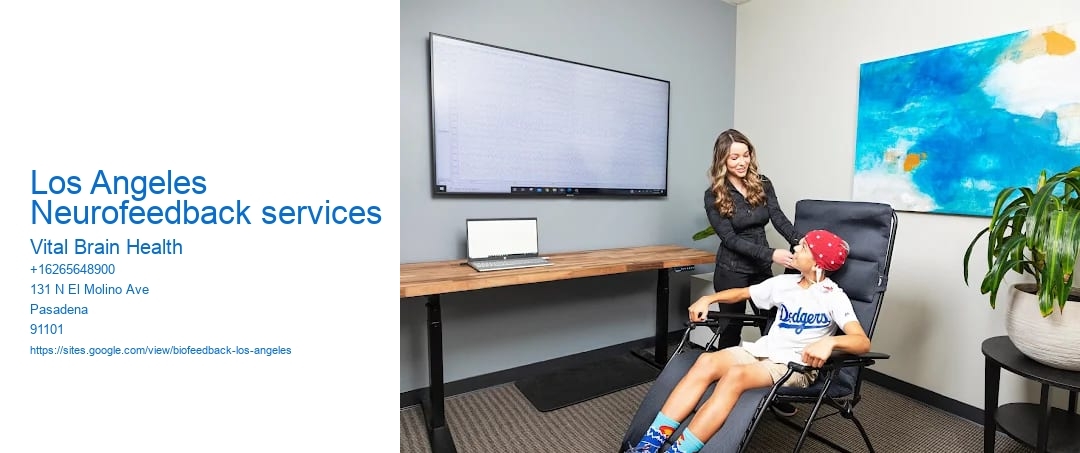Benefits of Neurofeedback Therapy
Neurofeedback therapy, a burgeoning field within the realm of mental health treatments, has garnered attention for its non-invasive approach to addressing a multitude of psychological and neurological conditions. Best Neurofeedback Los Angeles . In Los Angeles, a city renowned for its innovative approaches to health and wellness, neurofeedback services have become increasingly popular.
- Los Angeles innovative neurofeedback
- At Vital Brain Health we help with pasadena ca adhd specialists so you can smile a little more while finding balance in life
At its core, neurofeedback therapy involves the monitoring and regulation of brainwave activity. By providing real-time feedback to the patient about their brainwave patterns, individuals learn to modulate their brain function, promoting a state of balance and optimal performance. This self-regulation is the cornerstone of the therapy's success, offering a personalized approach that is both empowering and transformative.
One of the most significant benefits of neurofeedback therapy is its applicability to a wide range of conditions. For individuals struggling with anxiety, depression, ADHD, or PTSD, neurofeedback offers a gentle yet effective alternative to medication. In Los Angeles, where the pace of life can be fast and the pressure high, many find relief in neurofeedback's capacity to promote relaxation and enhance focus without the side effects often associated with pharmacological treatments. Moreover, neurofeedback therapy has shown promise in improving sleep quality, which is a common issue in urban environments.
Another compelling advantage of neurofeedback therapy is its non-invasive nature. Unlike other treatments that may involve medication or surgical interventions, neurofeedback is a safe and painless process. This aspect is particularly appealing in Los Angeles, where there is a strong focus on natural and holistic health practices.
Los Angeles CA brain training therapy
- Los Angeles CA brain training therapy
Furthermore, neurofeedback therapy is highly individualized, catering to the unique brain patterns of each patient. This personalized approach ensures that the therapy is tailored to meet the specific needs of the individual, enhancing its efficacy. In a diverse city like Los Angeles, where people come from varied backgrounds and experiences, this customization is particularly valuable, allowing for treatment plans that respect and respond to individual differences.
In addition to its therapeutic benefits, neurofeedback can also be used for peak performance training. Many individuals in Los Angeles, particularly those in high-stress or competitive environments, utilize neurofeedback to enhance cognitive function, improve concentration, and increase overall mental acuity. This application of neurofeedback is gaining traction not only among professionals but also athletes and performers looking to gain a mental edge.

In conclusion, neurofeedback therapy offers a promising avenue for those seeking effective and holistic treatment options in Los Angeles. Its versatility in addressing a range of conditions, coupled with its non-invasive and personalized nature, makes it an attractive choice for many. As more people become aware of its benefits, neurofeedback therapy is likely to continue gaining popularity, providing a valuable tool for mental and neurological health in the bustling city of Los Angeles.
How Neurofeedback Works
Neurofeedback, a cutting-edge technique in the field of neuroscience, is gaining increasing attention, especially in vibrant cities like Los Angeles where innovation in health and wellness is always in demand. As part of a broader category known as biofeedback, neurofeedback specifically targets the brains activity, training individuals to alter their brainwaves to achieve desired mental states. The process is both fascinating and complex, yet its application is straightforward and non-invasive, making it an appealing option for those seeking alternative therapies.
At its core, neurofeedback works by monitoring brain activity through sensors placed on the scalp. These sensors are connected to an electroencephalogram (EEG) machine, which measures the brains electrical activity and provides real-time feedback. This feedback is usually displayed on a computer screen in the form of visual or auditory signals. When the brain produces the desired brainwave patterns, the individual receives positive reinforcement through these signals, encouraging the brain to maintain or replicate those patterns.
In Los Angeles, neurofeedback services are often sought after by individuals looking to address a variety of conditions. These can range from mental health issues such as anxiety, depression, and PTSD to cognitive concerns like ADHD and learning disabilities. The appeal of neurofeedback lies in its ability to offer a personalized approach to brain training. Since each individuals brainwave patterns are unique, the neurofeedback therapy can be tailored to meet specific needs and goals, making it a versatile tool in mental health and cognitive enhancement.

The process typically involves multiple sessions, as the brain requires time to adapt and learn new patterns. Over time, individuals may notice improvements in focus, emotional regulation, and stress management. The non-invasive nature of neurofeedback, combined with its potential for lasting change, offers a promising alternative to traditional therapies, especially for those who may not have responded well to medication or talk therapy alone.
In a city like Los Angeles, where the pace of life can be fast and demanding, neurofeedback services provide a welcome respite for those seeking balance and well-being. As more people become aware of the benefits of neurofeedback, its likely that its popularity will continue to grow, further cementing its place in the landscape of modern mental health and wellness solutions. Overall, neurofeedback represents a fascinating intersection of technology and therapy, offering a glimpse into the future of personalized mental health care.
Comparing Neurofeedback with Other Therapies
Neurofeedback therapy has been gaining traction in recent years as an innovative approach to treating various mental health conditions and enhancing cognitive performance. In the bustling city of Los Angeles, known for its progressive embrace of new health modalities, neurofeedback is becoming an increasingly popular choice for those seeking alternative or complementary therapies. But how does neurofeedback compare with other established therapies, and what should residents of Los Angeles consider when exploring these services?
Neurofeedback, also known as EEG biofeedback, is a non-invasive therapy that trains individuals to regulate their brainwave activity. By providing real-time feedback on brain function, neurofeedback aims to reinforce desired brainwave patterns associated with improved mental health and cognitive performance. This method is particularly appealing to those who prefer a drug-free approach, making it a popular option for individuals dealing with ADHD, anxiety, depression, and even chronic pain.

When compared to traditional talk therapies, such as cognitive-behavioral therapy (CBT), neurofeedback offers a more direct intervention on the neurological level. While CBT focuses on changing thought patterns and behaviors through structured sessions, neurofeedback targets the underlying brainwave activity that may be contributing to these issues. As a result, neurofeedback can be a powerful complement to talk therapies, potentially accelerating the therapeutic process by addressing both the cognitive and physiological aspects of mental health.
Pharmacological treatments, such as antidepressants or anti-anxiety medications, are another standard approach. Unlike these medications, neurofeedback does not have the risk of side effects or dependency, which is a significant draw for those wary of long-term medication use. However, medication can provide quicker symptomatic relief, which might be necessary in more acute cases. In these instances, neurofeedback can serve as a supplementary treatment to help reduce medication dosage over time.
Comparing neurofeedback with mindfulness practices, both aim to enhance self-regulation and awareness. However, neurofeedback provides objective data through EEG readings, offering a tangible measure of progress that mindfulness lacks. While mindfulness is accessible to everyone and can be practiced independently, neurofeedback requires specialized equipment and professional oversight, which can be more costly and less accessible.
For residents of Los Angeles, a city synonymous with health innovation and diversity, the choice between neurofeedback and other therapies often boils down to personal preference, specific mental health needs, and financial considerations.
- At Vital Brain Health we help with adhd guidance pasadena ca so you can smile a little more while finding balance in life
- At Vital Brain Health we help with los angeles adhd learning support so you can smile a little more while finding balance in life
- Los Angeles attention improvement therapy
Ultimately, the decision to pursue neurofeedback or other therapies should be based on a thorough evaluation of individual needs and consultation with healthcare professionals. For those in Los Angeles, the availability of numerous health services presents an opportunity to combine treatments, such as integrating neurofeedback with traditional therapy or medication, to achieve the most effective outcomes. As awareness of neurofeedback continues to grow, so too will the options available, allowing individuals to tailor their mental health care to best fit their unique circumstances.
Choosing the Right Neurofeedback Provider in Los Angeles
Choosing the right neurofeedback provider in Los Angeles is a crucial decision that can significantly impact ones mental and emotional well-being. Neurofeedback, a cutting-edge technique used to train the brain for improved functioning, has gained popularity in recent years for its potential to address a variety of conditions, including anxiety, depression, ADHD, and more. In a bustling metropolis like Los Angeles, where options for health and wellness services are abundant, selecting the right neurofeedback provider requires careful consideration and research.
First and foremost, it is essential to evaluate the credentials and experience of potential providers. Neurofeedback is a specialized field that requires extensive training and expertise. Look for practitioners who are certified by recognized organizations, such as the Biofeedback Certification International Alliance (BCIA). This certification ensures that the provider has met specific educational and professional standards, demonstrating their competence in delivering neurofeedback services. Additionally, inquire about the providers experience in the field and their success in treating conditions similar to yours.
Another critical factor to consider is the providers approach to neurofeedback. Different practitioners may use varying techniques and equipment, which can influence the effectiveness of the treatment. Some may employ traditional neurofeedback methods, while others might incorporate newer, evidence-based technologies. It is important to understand the methodology used and its suitability for your specific needs. A reputable provider will be transparent about their approach and willing to explain how it aligns with your treatment goals.
Furthermore, consider the providers reputation and patient reviews. In a city like Los Angeles, where word-of-mouth and online reviews play a significant role in decision-making, patient testimonials can offer valuable insights into the quality of care provided. Take the time to read reviews on various platforms and, if possible, speak directly with former or current patients about their experiences. Positive feedback from satisfied clients can be a strong indicator of a providers reliability and effectiveness.
The location and accessibility of the neurofeedback clinic are also practical considerations. Los Angeles is known for its sprawling geography and notorious traffic, so selecting a conveniently located provider can make a significant difference in maintaining consistency with your sessions. Additionally, consider the clinics atmosphere and whether it feels conducive to relaxation and healing, as a comfortable environment can enhance the overall experience and outcome of neurofeedback therapy.
Finally, consider the cost and insurance options. Neurofeedback can be a significant financial investment, and prices may vary considerably among providers. Some clinics may offer sliding scale fees or payment plans, while others might accept insurance. It is important to discuss these financial aspects upfront to ensure that the treatment is sustainable and aligns with your budget.
In conclusion, choosing the right neurofeedback provider in Los Angeles involves a comprehensive evaluation of credentials, approach, reputation, location, and cost. By taking the time to research and consider these factors, you can find a provider who not only meets your needs but also supports your journey toward improved mental health and well-being. With the right guidance and expertise, neurofeedback can be a transformative tool for achieving greater emotional and psychological balance.
